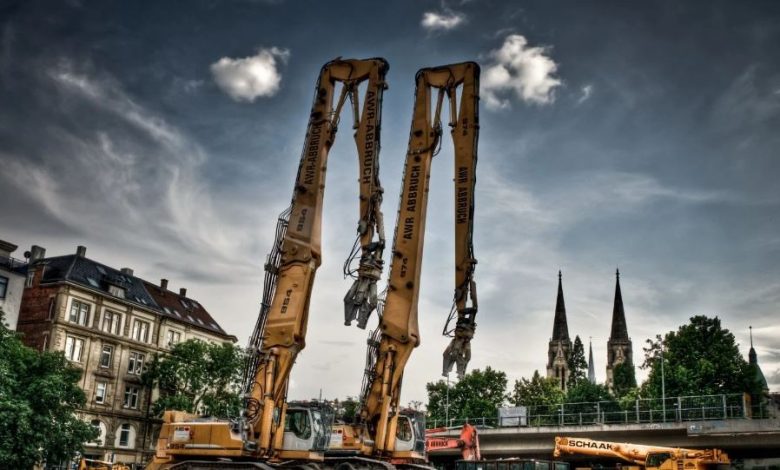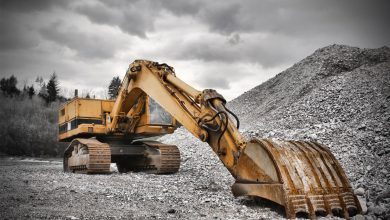13 Essential Pre-Construction Services

Planning a building project whenever you outgrow your existing facility and need to expand or rebuild to meet demands can be daunting.
Many individuals have never dealt with construction before, or they simply don’t have the time or resources to ensure that everything is taken care of and whether the construction remains financially viable.
Going alone may not always be feasible. Consequently, you may want to hire professional builders and constructors. But the first step, before the actual construction, is pre-construction services.
What Are Pre-Construction Services?
Pre-construction services are more than estimating costs for construction. They include everything, starting from initial meetings with the client to:
- planning,
- scheduling,
- studying,
- valuing,
- engineering,
- permitting,
- acquiring land,
- and a lot more.
Let’s take a dive into the several pre-construction services you might need before actually building your home.
-
Initial Setting and Follow-ups
First, you’ll have an initial meeting with the contractor and his team, including the designers. This meeting shall go over your goals and objectives, in addition to the budget.
If you hire the constructor, you shall have a couple of other meetings with the constructor during the pre-construction process for follow-ups and progress in addition to any changes.
-
Project Evaluation
After the initial meeting, you finally decide upon a professional builder and constructor. After that, starts the pre-construction process with the evaluation of the project. This begins right off the initial meeting and is one of the major elements of the entire project.
This evaluation establishes the groundwork for the remainder of pre-construction services and the entire project. This also defines and sets expectations and objectives of the project and makes it easier for the whole of the team to understand the project.
You’ll have to collaborate with professional builders and constructors for a final concept of the visuals of the house, in addition to sizing and materials. Starting from the basic floor plans. Design inspectors and consultants will also be chosen alongside other pre-construction services.
-
The Initial Design Schematic
You’ll collaborate with the designers from the construction company to design a schematic for your project. Sometimes, you’ll develop the schematic design alongside the project evaluation. This is going to help you visualize your dream house for the first time.
However, since this is the first time you’re visualizing it, you can make amendments and provide feedback until you reach your final design. At times, this can also be a pivotal point, whether you should continue with the construction company or not.
-
Estimating Budgets
The budget for a construction project depends upon multiple variables, like:
- Cost of the materials
- Suppliers
- Subcontractors
- Equipment, etc.
You’ll have to work alongside the contractor to evaluate a couple of options to select the most suitable one.
The constructor will also have to identify potential cost issues alongside cost-saving opportunities. Cost-saving opportunities can be a definite plus in the entire process of pre-construction.
-
Choosing Equipment And Materials
Looking for economical yet efficient equipment and material for the construction job is another pre-construction service. This first starts with the construction method the constructors will employ, alongside the equipment required to operate the system.
At times, you can save by ordering materials in bulk. Furthermore, the contractor will also have to establish any sustainable and LEED design options. Recently, sustainability and eco-friendly designs have taken a boost. Are you even looking to build a greenhouse?
-
Value Engineering
The contractor will seek to establish whether the extent of the work will match the client’s budget during this pre-construction service. Based on previous experience with projects of similar size and scope. The contractor will look for additional cost savings areas.
They’ll also predict the life-cycle cost analysis of specific supplies used on the task and suggest alternative solutions.
-
Site Go-through
In this pre-construction step, the professional builders and constructors will visit the construction site to examine the project’s feasibility. This means that they will look to see if the location suits the project’s requirements.
Additionally, they will also try to assess any unforeseen future expenses and challenges. The contractor can do so by creating a suitable plan, including:
- Landscaping,
- Traffic flow, and
- Parking
The constructors also need to judge whether the soil is good enough for construction, the condition of the current infrastructure, resources, and planned routing and position. Assessing all of this will help the constructor determine whether or not the project is practical.
-
Obtaining Approvals
Before any construction activities, you must obtain certain approvals and permits from the local government during the pre-construction phase. This includes site plan approvals and building permits.
You may require several additional permits and approvals for utility providers and other tasks. Leave this to your professional builder and constructor to obtain permits and approvals; they know their job.
-
Thorough Review Of Documents
Remember the schematic design from before? That was just a rough draft. The constructor will pour his entire effort to bring to life what you dream of. Review every minor detail and element thoroughly to get a relevant bid proposal.
Evaluate the material, system and delivery, alongside targeting the concerned area. The team will only move forward unless the entire team is on a single page. Additionally, consider every minor detail carefully, with every team member’s opinion.
-
Preliminary Schedule
Creating the preliminary schedule is a vital part of the pre-construction process. The schedule will help identify major milestones and schedule the entire project.
This will help you proceed with the project in an organized manner, establishing clear outlines till the conclusion. The schedule will define all construction and design activities from the beginning until the end.
This will form the project sequencing plan, requiring you and the subcontractor to work on a schedule feasible for everyone. This will provide a foundation plan for the entire project to run upon.
-
Final Budget
The final budget meeting will require you and the constructor to work together on a final budget. By now, you must already have a figure in mind. However, you’ll need some assistance from the contractor to reach a reasonable and feasible budget.
Cost control measures of the contractor will also help control the budget. Before finalising everything, the contractor will give the entire construction plan a final look to identify any cost-saving areas.
The contractor may benefit from cost models and estimating, in addition to asking the subcontractor for their input as well. Furthermore, market conditions, cash flows, and other elements will be reviewed to establish the final budget.
-
Procurement Management
Place orders for any materials with a long lead time during this phase only. While it can be easy to overlook the lead time during procurement, however, this may cause easily avoidable delays.
Usually, critical materials have a longer lead time. Plan for the lead time, especially for necessary materials, so that there aren’t any unnecessary delays during the actual construction.
-
Bidding
It’s finally time to propose the bid. While bidding is open to all, however, the constructor with strong pre-construction working usually has an edge. It would be best to involve the architect and subcontractors in this process.
Once the bid is secured, form a final schedule, and evaluate the entire work scope.
To Sum It Up,
Finally, don’t forget to create a safety plan for your workers and ensure all follow the safety precautions strictly.
In conclusion, pre-construction services are a great opportunity for you and the professional builders and contractors to assess the practicality of the project and plan out the entire construction journey to its conclusion.
This is also a major opportunity to save on costs and allow a smooth workflow. Since most of the job is already done, the workers just need to keep up with the schedule. However, this is only possible if you work with reputable and professional builders and constructors.






